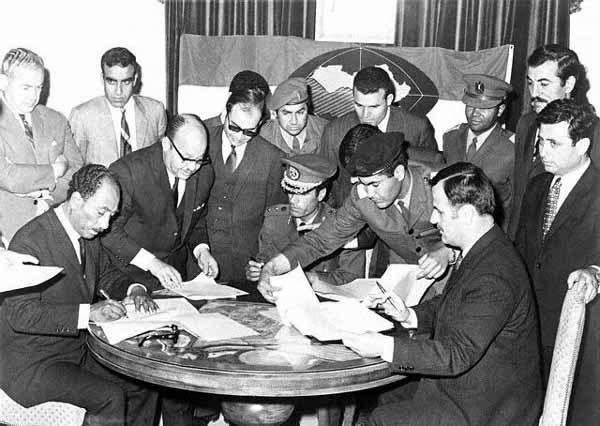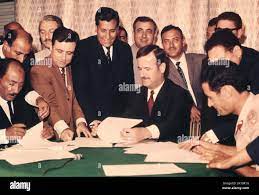Secretary of State George P. Shultz and Syrian Foreign Minister Abdel Halim Khaddam today discussed the impasse over policing the cease-fire in Lebanon, but a senior U.S. official said later that Syria still refuses to permit use of U.N. observers.
The official also denied that the United States has made “a radical shift” in its Middle East policy, as reported by The Washington Post today from Beirut.
But officials confirmed that President Reagan’s special Middle East envoy, Robert C. MacFarlane, had argued to Syria in negotiations for a Lebanese cease-fire that its desire to regain influence in Lebanon can best be achieved not by prolonging the civil war there but through negotiations giving pro-Syrian factions a chance to win a greater share of political power.
A senior U.S. official and Lebanese Christian leaders had told a Post correspondent in Beirut that the United States also had pressured Lebanese President Amin Gemeyal to make concessions on Syria’s role.
“I can’t see any basis whatever for any idea we are doing anything but supporting President Gemayel as vigorously as we can,” the official here told reporters. “We are helping him to bring stability to the Beirut area; we are helping him to try to achieve a national reconciliation that will permit his government to assert its authority throughout the country, and we will continue those efforts.”
Shultz’s immediate concern here was the search for an acceptable neutral observer group to help maintain the fragile cease-fire in the Beirut area while Gemayel and leaders of Lebanon’s Druze, Moslem and Christian factions negotiate new political arrangements to end that country’s protracted civil war.
The United States wants that role assigned to the U.N. Truce Supervision Organization (UNTSO). But Syria, which supports the anti-Gemayel factions, has balked at that idea, and the senior official said Khaddam had reiterated his government’s opposition in today’s meeting.
The officials acknowledged that the United States has encouraged Gemayel to engage in a “dialogue of national reconciliation” that likely will result in his predominantly Christian government giving greater representation to Lebanon’s other religious factions.
They contended that Gemayel has taken that position freely despite objections from old-line Christian political leaders including his father, Pierre, who wants a restoration of the former system of Christian political domination.


